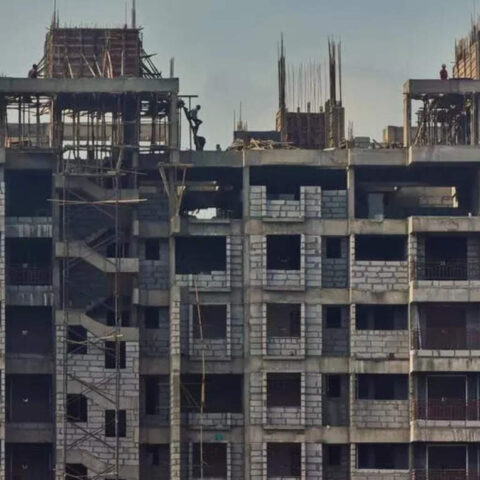 Slate Office REIT (SOT.UN-T) has announced the pending termination of an external management agreement with Slate Management ULC, and that Blair Welch and Brady Welch, two of the founding members of the trust, have resigned from its board of directors effective immediately.
Slate Office REIT (SOT.UN-T) has announced the pending termination of an external management agreement with Slate Management ULC, and that Blair Welch and Brady Welch, two of the founding members of the trust, have resigned from its board of directors effective immediately.
The moves are the latest developments in Slate Office REIT’s ongoing struggle to shore up its difficult financial situation, and in a dispute between the external manager and Slate Office’s largest investor, George Armoyan and one of his companies G2S2 Capital.
Slate Management ULC, an entity controlled by the Welch brothers, has been acting as the external manager for Slate Office REIT. In accordance with the management agreement, Slate has provided the REIT with a 180-day notice of termination. A release Thursday morning states it “will cooperate and work diligently with the REIT to prepare a transition plan and effect the transition of the management services to the REIT in an orderly manner as soon as reasonably practicable.”
“We are working collaboratively with Slate to internalize management of the REIT,” said Sam Altman, the chair of Slate Office REIT’s board of trustees, in the announcement. “The Trustees believe that internalized management will achieve strong alignment with unitholders and lower costs for the REIT.”
Slate’s units were trading at 72 cents on the TSX this morning, up from Monday’s close of 57 cents.
Slate’s moves to shore up finances
Slate has been shedding assets and lowering costs in recent months as it tries to lower its overall debt. It has been impacted by an ongoing downturn in the office real estate sector, elevated vacancy in some of its properties, and an extended period of higher interest rates.
In June, Slate Office REIT announced it had received notices of default on one of its credit facilities, and that it expected to also default on interest payments for several of its debentures.
But its efforts to deal with the situation extend back over the past year. Slate announced a major realignment plan in the fall of 2023 when it asked its investors for, and was granted, the right to raise its maximum allowable debt beyond the previous limit of 65 per cent of gross book value. G2S2 Capital successfully argued the easing of the restriction have a deadline of Dec. 31, 2025.
Slate also announced at that time plans to sell up to 40 per cent of its portfolio, and suspended its dividend in order to preserve cash.
In its Q2 financials, however, the difficult news continued. Slate reported a net loss of about $150 million, compared to a net loss of $19.6 million for the year-earlier quarter.
It also reported about $1.6 billion of assets, down 11 per cent from $1.75 billion at the end of 2023. It blamed the decline on asset sales (Slate Office had divested about $50 million of properties through the first six months of the year), as well as writedowns to its property values.
It’s loan-to-value ratio jumped 6.1 per cent through the first six months of 2024, to 73.8 per cent in the Q2 2024 report.







